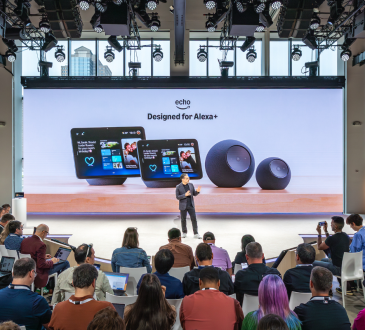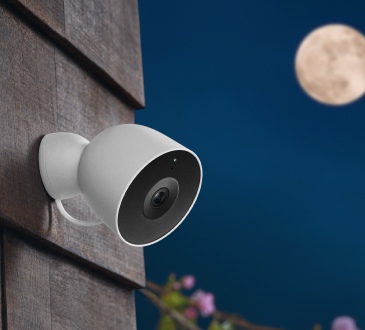Google Challenges Amazon with Major Overhaul of Smart Home: Gemini Transforms the Way We Interact at Home

In a major push in its smart home play, Google has announced a complete overhaul of its smart home ecosystem, positioning itself as a serious contender against Amazon’s Alexa as the world moves toward super-smart devices. At the heart of this change is Gemini, Google’s ambitious new AI assistant, which aims to turn once-stale smart home commands into smooth, conversational interactions—at least for those willing to pay for the service.
Amazon’s Alexa-powered devices have dominated the smart home market for years, offering users a blend of convenience and familiarity. Google, meanwhile, has been incrementally enhancing its Home and Nest devices, but it often appeared to be playing catch-up in the voice-activated home battle. With Gemini, Google seems to be mounting its most ambitious push yet, combining the intelligence of large language models with everyday home devices.
The Promise of Gemini
Google Assistant has always been an evolution rather than a revolution—but Gemini promises to change how users interact with smart home devices entirely. Unlike standard voice assistants, which mostly respond to direct commands—such as toggling a light, creating a timer, or adjusting the thermostat—Gemini converses naturally.
- Users can ask detailed questions or give nuanced instructions, or even hold a conversation with the AI.
- Gemini understands, contextualizes, and responds intelligently to requests.
Key Feature: Gemini can remember context across multiple interactions.
- Example: If you tell Gemini to “get the living room ready for movie night,” it can:
- Dim the lights
- Close the blinds
- Adjust the thermostat
- Queue up your movie
All in a single interaction, instead of requiring multiple separate commands.
- This situational memory carries over to follow-up instructions, making interactions feel less rigid and more human-like.
Integration Across Devices
Gemini leverages Google’s entire ecosystem, integrating seamlessly with devices such as:
- Nest Thermostats
- Smart security cameras
- Smart displays
For example, a user could ask Gemini to “prepare the house for a workout,” prompting the AI to:
- Play motivational music
- Adjust lighting
- Check air quality
- Recommend the optimal workout time
Additionally, Gemini works across:
- Google Pixel phones
- Chromebooks
- Upcoming Nest Hub Max displays
This interconnected ecosystem aims to give Google an edge over Amazon, where Alexa often requires third-party integrations to achieve similar functionality.
The Cost Factor
As exciting as Gemini is, there is a catch: Google plans to charge for advanced conversational features.
- Subscription Model: Advanced functionality will require a monthly fee.
- Reasoning: Monetization allows Google to invest in AI development and privacy protections.
Industry Perspective:
- Pros: Funding could enhance AI capabilities and security.
- Cons: Could slow adoption compared to Amazon, which offers a free baseline experience with Alexa.
While the value Gemini provides may justify the cost for some, the subscription model could be a hurdle for users accustomed to free smart assistant services.
Privacy and Security Considerations
Privacy remains a central concern with AI-powered smart home technology. Google emphasizes:
- Gemini’s conversational memory is securely stored.
- Users can control the amount of data retained.
- Personalized interactions are encrypted and not used for advertising.
Expert Insight:
The depth of Gemini’s contextual awareness requires access to detailed user behavior and routines, creating a delicate balance between AI performance and robust privacy protections. This balance will be under scrutiny as Gemini rolls out.
Impact on the Smart Home Market
Gemini introduces a new level of competition between Google and Amazon, potentially reshaping the smart home landscape.
- Google targets users who prefer seamless automation and natural interactions over simple command-response models.
- Industry analysts predict that if Gemini delivers as promised, Amazon may need to enhance Alexa’s conversational capabilities, potentially accelerating innovation across the industry.
- Benefits for consumers could include:
- Enhanced energy management
- Improved home security
- Smarter family communication tools
Early Reactions and Expectations
Early feedback from tech reviewers and insiders has been largely positive:
- Gemini’s natural language processing and contextual memory are highly praised.
- Beta testers describe conversations with Gemini as “strikingly human-like”, capable of anticipating needs and understanding ambiguous instructions.
Skeptical Viewpoint:
- The true test will be Gemini’s performance in diverse real-world households.
- Success depends on whether users perceive the premium experience as worth the subscription.
The Future of Smart Home AI
Gemini is more than a product release; it signals the next level of smart home AI.
- AI is becoming smarter and more intuitive, blurring the line between a simple assistant and a virtual household manager.
- Google’s challenge: balancing utility, value, and privacy, while convincing consumers that the subscription is justified.
- If successful, Gemini could set a new standard for natural, free-flowing interactions with home technology.
Conclusion
Google’s Gemini overhaul is a bold statement of intent in the smart home arena.
- The tech giant is challenging Amazon while also disrupting traditional home automation with the first conversational, context-aware assistant native to its ecosystem.
- Although the subscription model may impact adoption, the potential for a truly intelligent, interactive home experience could be appealing for early adopters and tech enthusiasts.
- The race for smart home dominance is underway, and Gemini demonstrates Google’s commitment to compete in a market where ease of use, intelligence, and user experience will ultimately determine the victor.
The era of conversational smart homes has officially arrived, and the question remains: will consumers embrace this new AI-driven lifestyle, or stick with the familiar voice of Alexa? Either way, the future of smart home interaction has begun.




